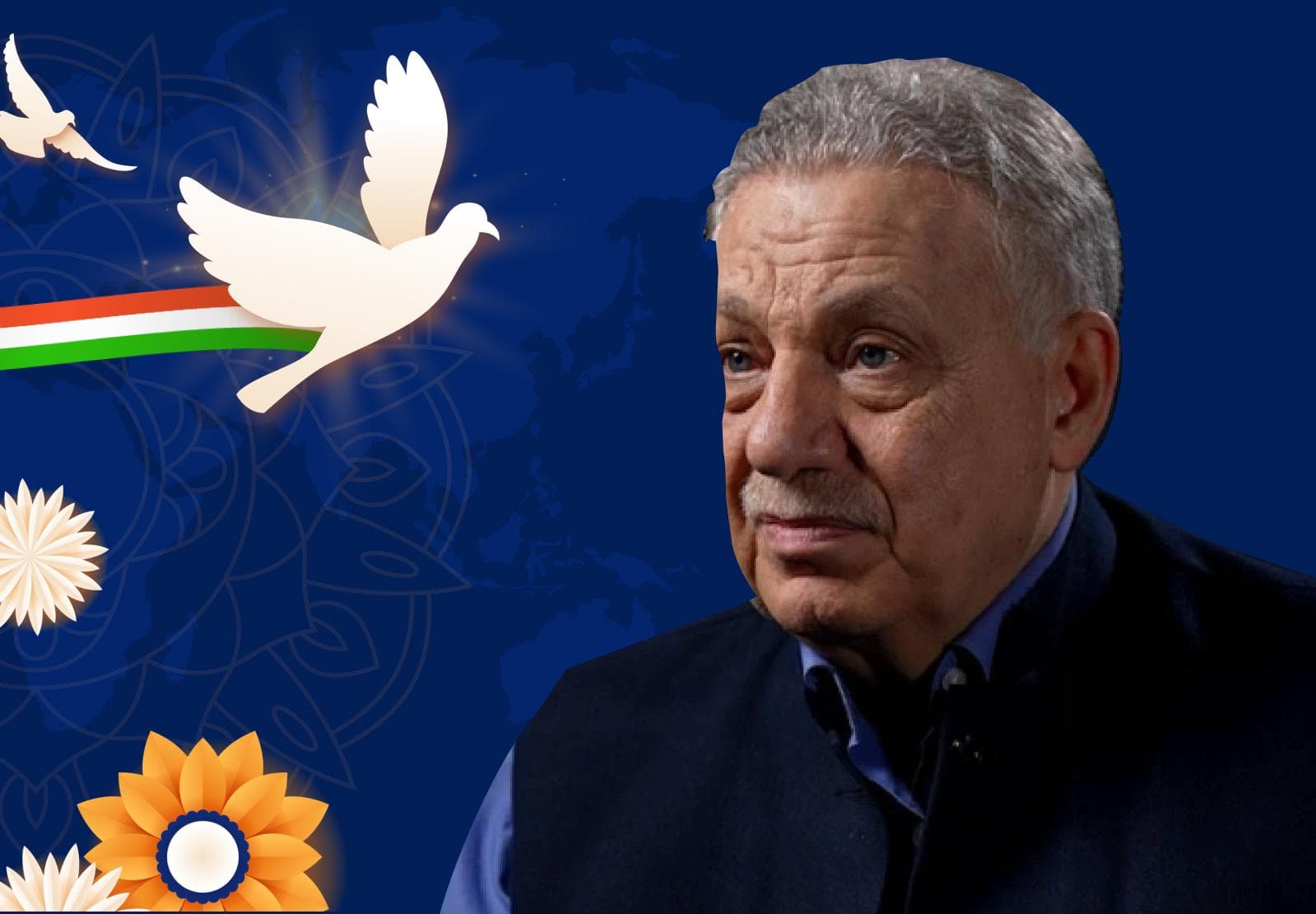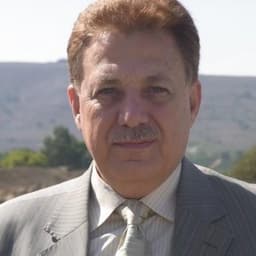Diplomacy's New Vanguard Rises Boldly
A journey from regional power to a key player in international affairs, advocating for peace and stability, especially in the context of West Asia

From its economic liberalization in the 1990s to its current status as both a soft and assertive power, India's journey is deeply admired in the Arab world. Our countries share historical bonds, further strengthened by economic and geopolitical ties, as evidenced by the substantial Indian workforce in the Gulf.
The longstanding and deeply-rooted connection between Arabs and Indians is a significant aspect of global cultural and economic interactions. This relationship, characterized by warmth and mutual respect, is clearly evident in the substantial presence of the Indian diaspora in the Gulf region. Over 8 million Indians are residing and working there, actively contributing to the welfare and growth of these countries. Their role in various sectors, ranging from physical labour intensive jobs to high-skilled professions, underscores the integral part they play in the region's development.
Furthermore, the ties between these regions are further reinforced by tourism and familial visits. Annually, more than 14 million Indians travel to the Gulf, a testament to the intertwined social and economic networks that bind these regions. These visits are not just about leisure and tourism but also reflect the strong familial, cultural, and business relationships that have been cultivated over generations.
This substantial exchange of people and culture between India and the Arab world symbolizes a robust, dynamic relationship that has significant implications for both regions. It highlights how interconnected our world has become and how cultural and economic exchanges can lead to mutual growth and understanding. This synergy is a model of international cooperation and stands as a testament to the benefits of cross-cultural collaboration.
As we witness a fragile and unbalanced world order, the necessity for a multipolar world becomes clear. In this context, India's role is pivotal. Its active involvement in BRICS, Shangai Cooperation Organisation (SCO), and its leadership in the G-20 highlight its strategic importance. Yet, the disparate global response to conflicts in places like Gaza and Ukraine reveals the fragility of our international system. Here, India’s voice can be crucial, especially in advocating for changes in the United Nations' functioning and standing against human rights violations, such as those witnessed in Palestine.
The issue at hand reveals a striking contradiction in the international approach to crises. On one side, there's a noticeable silence or inadequate response to the plight of innocent Palestinians being killed in the Gaza Strip, West Bank, and East Jerusalem, primarily at the hands of Israeli Defense Forces. This situation starkly contrasts with the robust and supportive stance taken by Western nations towards civilian killings in Ukraine amidst its conflict with Russia. This disparity not only sheds light on what could be perceived as hypocrisy in international dealings but also highlights the fragility of the current global system. Such inconsistencies in response to human rights issues reveal the complex interplay of geopolitical interests over principled humanitarian action. Considering this, the role of emerging nations, particularly those like India, becomes crucial. These countries, led by strong leaders, are called upon to play a more assertive role in the international arena. Their involvement is essential to counteract the carnage and suffering of civilians in conflict zones, such as those witnessed in the Israeli-Palestinian conflict. The situation thus beckons emerging nations to step up and contribute to a more balanced and just world order, advocating for the protection of human rights and supporting efforts to prevent the loss of innocent lives in conflict regions.
Prime Minister Narendra Modi's assertion that "this is not the era of war" resonates as a call for peace. With its global respect and democratic values, India is well-positioned to be a strong advocate for peace and conflict resolution, including in the complex landscape of the Middle East.
India’s voice is pivotal and must resonate strongly across the Middle East, a region deeply interlinked with her own interests, ranging from oil and energy security to the welfare of her extensive expatriate community. As the world's largest democracy, India has both the capacity and the moral authority to influence key issues in the region positively.
It is time for India to leverage its democratic values and deep respect for public opinion to advocate for the cessation of hostilities in Gaza. By taking a stand against the loss of innocent lives and opposing the occupation of lands through colonization, India can reinforce its position as a leader on the global stage. Such actions, rooted in justice and compassion, align perfectly with India's democratic ethos and are in line with the expectations of the international community.
Moreover, India must assert its stance against forceful regime changes, upholding the principles of the United Nations Charter and norms of international engagement. India’s ongoing commitment to these values showcases her dedication to maintaining global peace.
As the champion advocate of the Global South, India's role extends beyond geopolitics; it's about demonstrating solidarity with those who seek justice and dignity. Embracing the legacy of Mahatma Gandhi, who championed the cause of freedom and justice through non-violence, India has the opportunity to lead by example in fostering peace and stability.
India’s proactive involvement at this critical juncture is not just desirable but essential. Our actions today will not only shape our legacy in world history but also affirm our commitment to the principles of democracy and human rights. With a positive and decisive approach, India can make a significant impact in the pursuit of a more peaceful and just world order.
Turning to the ongoing Israel-Hamas conflict, the recent failure of the Organisation of Islamic Cooperation (OIC) and the Arab League to reach a consensus highlights the challenges in the region. India, championing the principle of "One Earth, One Family, One Future," could potentially offer a blueprint for managing humanitarian crises amidst these challenges. Yet, the global political landscape, particularly the actions of Western nations, often stands in contrast to this humanitarian ethos.
The Israel-Palestinian conflict, a century-long saga, has been oversimplified in narratives, ignoring the broader international implications. The emergence of groups like Hamas and the underlying economic interests, such as regional development projects and natural resources, further complicate the situation. In this scenario, global powers committed to justice and peace must unite to pressure Israel to adhere to United Nations Security Council resolutions and work towards the establishment of a Palestinian state. India, with its advocacy for Vasudhaiva Kutumbakam (The World is One Family) is in a prime position to lead this effort.
Looking ahead, India's growing partnerships in the Middle East, such as the India-Middle East Economic Corridor (IMEC), are intrinsically tied to the region's stability and security. The occupation of Palestinian lands by Israel continues to be a major hindrance to trust and cooperation in the region.
Finally, the significant role of the Indian expatriate community in West Asia highlights the enduring bond between India and the Arab world. As India advances in modern technologies and governance, its workforce is poised to play an even more significant role in the region's future.
In conclusion, India's unique position and historical ties with West Asia offer it a significant opportunity to emerge as a force for peace and constructive development. In the face of a complex geopolitical landscape, India's actions and diplomacy can greatly influence the pursuit of sustainable peace and prosperity in the region.

Dr. Waiel Awwad 🇸🇾
Deep Dive
Indian workforce: The Gulf countries employ about half of India’s total immigrant workforce. According to data, among all the “white-collar” professionals in the GCC countries, around 20-23% are Indians. Over 8 million Indians are residing and working there.
‘Extended neighbourhood’: Today, the Gulf is an integral part of India's ‘extended neighbourhood’, both by way of geographical proximity and as an area of expanded interests and growing Indian influence. Historic maritime and cultural links have developed into strong relationships of ‘energy, expatriates and economy’.
India against war: In his June 2023 visit to the US, Prime Minister NarendraModi exhorted the word against war to usher in phase of peace. He famously said, “This is not era of war… peaceful resolution of disputes and respect for sovereignty and territorial integrity.
Gandhi & Gaza: Mahatma Gandhi’s principles on pursuing peace even in utmost complex situations of conflict are guiding light to find cessation in pestering wars like Gaza and Ukraine. Gandhi is adored in West Asia and his teachings will serve best in today’s circumstances.


































